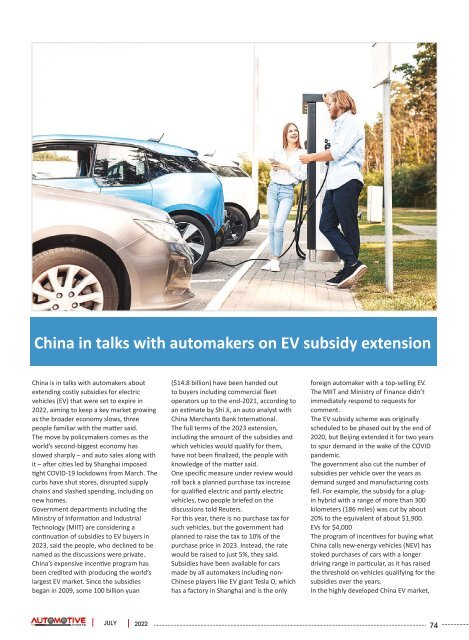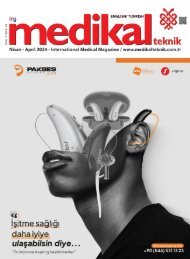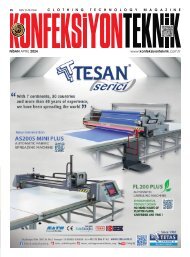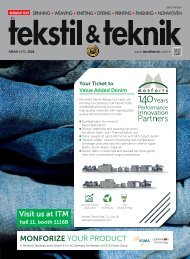You also want an ePaper? Increase the reach of your titles
YUMPU automatically turns print PDFs into web optimized ePapers that Google loves.
China in talks with automakers on EV subsidy extension<br />
China is in talks with automakers about<br />
extending costly subsidies for electric<br />
vehicles (EV) that were set to expire in<br />
<strong>2022</strong>, aiming to keep a key market growing<br />
as the broader economy slows, three<br />
people familiar with the matter said.<br />
The move by policymakers comes as the<br />
world’s second-biggest economy has<br />
slowed sharply – and auto sales along with<br />
it – after cities led by Shanghai imposed<br />
tight COVID-19 lockdowns from March. The<br />
curbs have shut stores, disrupted supply<br />
chains and slashed spending, including on<br />
new homes.<br />
Government departments including the<br />
Ministry of Information and Industrial<br />
Technology (MIIT) are considering a<br />
continuation of subsidies to EV buyers in<br />
2023, said the people, who declined to be<br />
named as the discussions were private.<br />
China’s expensive incentive program has<br />
been credited with producing the world’s<br />
largest EV market. Since the subsidies<br />
began in 2009, some 100 billion yuan<br />
($14.8 billion) have been handed out<br />
to buyers including commercial fleet<br />
operators up to the end-2021, according to<br />
an estimate by Shi Ji, an auto analyst with<br />
China Merchants Bank International.<br />
The full terms of the 2023 extension,<br />
including the amount of the subsidies and<br />
which vehicles would qualify for them,<br />
have not been finalized, the people with<br />
knowledge of the matter said.<br />
One specific measure under review would<br />
roll back a planned purchase tax increase<br />
for qualified electric and partly electric<br />
vehicles, two people briefed on the<br />
discussions told Reuters.<br />
For this year, there is no purchase tax for<br />
such vehicles, but the government had<br />
planned to raise the tax to 10% of the<br />
purchase price in 2023. Instead, the rate<br />
would be raised to just 5%, they said.<br />
Subsidies have been available for cars<br />
made by all automakers including non-<br />
Chinese players like EV giant Tesla O, which<br />
has a factory in Shanghai and is the only<br />
foreign automaker with a top-selling EV.<br />
The MIIT and Ministry of Finance didn’t<br />
immediately respond to requests for<br />
comment.<br />
The EV subsidy scheme was originally<br />
scheduled to be phased out by the end of<br />
2020, but Beijing extended it for two years<br />
to spur demand in the wake of the COVID<br />
pandemic.<br />
The government also cut the number of<br />
subsidies per vehicle over the years as<br />
demand surged and manufacturing costs<br />
fell. For example, the subsidy for a plugin<br />
hybrid with a range of more than 300<br />
kilometers (186 miles) was cut by about<br />
20% to the equivalent of about $1,900.<br />
EVs for $4,000<br />
The program of incentives for buying what<br />
China calls new-energy vehicles (NEV) has<br />
stoked purchases of cars with a longer<br />
driving range in particular, as it has raised<br />
the threshold on vehicles qualifying for the<br />
subsidies over the years.<br />
In the highly developed China EV market,<br />
JULY <strong>2022</strong> 74

















